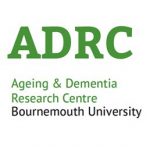In today’s blog post, Dr Michelle Heward, explores how the fantastic work of the Ageing & Dementia Research Centre has adapted to enable community engagement during the pandemic. Our older population, especially those who are extremely clinically vulnerable, have risked not being able to participate in shaping our future research owing to the restrictions in place over the last year. This engagement aspect is so important for ensuring research benefits society, and offers the bonus of social interaction for those who are having to isolate! Here Michelle explains how it is done:
“The COVID-19 pandemic has had a detrimental impact on face-to-face interaction. To meet UK Government guidance and stop the spread of the virus, we have been unable to meet up with family, friends, and colleagues in the ways that we are used to. For older people, people with dementia and family carers, this has exacerbated many existing difficulties and problems they face, whilst also further intrenching feelings of loneliness and isolation. Technology has been a saviour for many and has proved invaluable in connecting people with their loved ones. The team from the Ageing and Dementia Research Centre (ADRC) have overcome the barriers by using digital approaches to continue our engagement and expand our networks with members of the public, service users and carers. We have achieved this by developing a new series of monthly virtual ‘coffee mornings’ hosted on ZOOM.
We have designed each coffee morning to have a different theme/topic that may be pitching new ideas for research or sharing new findings. The group are invited to share their ideas, thoughts and ask questions. Ensuring that older people, people with dementia and family carers remain at the heart of our research activities has been central to the coffee mornings. The sessions have been well attended and the group have really engaged with the research topics and attendees are starting to get to know one another socially – many are returning each month which is fantastic!
So far, the group have contributed to discussions about nutrition with Prof Jane Murphy and wayfinding with Prof Jan Wiener. In the next session they will discuss nursing training in response to COVID-19 with Dr Michele Board. The discussion and questions raised have offered ‘food for thought’ for the presenters and will no doubt help us to shape future study ideas and generate new ideas for research. In fact, one of the key challenges has been keeping within the allocated time for the session as there has been so much discussion!
The sessions are facilitated by Dr Michelle Heward (Post-Doctoral Research Fellow and ADRC Service User and Carer Involvement Lead) and Caroline Jones (ADRC Administrator). On reflection it has been beneficial to have two facilitators; one to lead the session and the other to be on hand to help with IT issues and check the chat messages. We also offer support for people who have had little or no experience of using ZOOM beforehand to make sure they are comfortable using the technology and its functions prior to attending a session.
We acknowledge that the idea for the virtual coffee morning was drawn through our collaborative working with the Wessex Public Involvement Network (PIN), who shared their successes and experiences of developing a similar engagement model with us. This work has also been undertaken in consultation with BU Public Involvement in Education and Research partnership to ensure we are following current policy/procedures.
Although we recognise that not everyone is able to access the internet from home, we will continue to offer these sessions for the foreseeable future as they provide an alternative to those who may find it more difficult to travel or take part in our existing face- to-face approaches. Anyone interested in presenting their ideas or research in ageing or dementia that might be of interest to the group please contact Michelle to discuss.”
 Drumming for health: ADRC research collaboration with Nature Therapy CIC
Drumming for health: ADRC research collaboration with Nature Therapy CIC ADRC coffee morning: Future Directions in Ageing Research
ADRC coffee morning: Future Directions in Ageing Research ADRC coffee morning group identifies research priorities
ADRC coffee morning group identifies research priorities










 Nursing Research REF Impact in Nepal
Nursing Research REF Impact in Nepal Fourth INRC Symposium: From Clinical Applications to Neuro-Inspired Computation
Fourth INRC Symposium: From Clinical Applications to Neuro-Inspired Computation ESRC Festival of Social Science 2025 – Reflecting back and looking ahead to 2026
ESRC Festival of Social Science 2025 – Reflecting back and looking ahead to 2026 3C Event: Research Culture, Community & Cookies – Tuesday 13 January 10-11am
3C Event: Research Culture, Community & Cookies – Tuesday 13 January 10-11am Dr. Chloe Casey on Sky News
Dr. Chloe Casey on Sky News ECR Funding Open Call: Research Culture & Community Grant – Application Deadline Friday 12 December
ECR Funding Open Call: Research Culture & Community Grant – Application Deadline Friday 12 December MSCA Postdoctoral Fellowships 2025 Call
MSCA Postdoctoral Fellowships 2025 Call ERC Advanced Grant 2025 Webinar
ERC Advanced Grant 2025 Webinar Horizon Europe Work Programme 2025 Published
Horizon Europe Work Programme 2025 Published Update on UKRO services
Update on UKRO services European research project exploring use of ‘virtual twins’ to better manage metabolic associated fatty liver disease
European research project exploring use of ‘virtual twins’ to better manage metabolic associated fatty liver disease